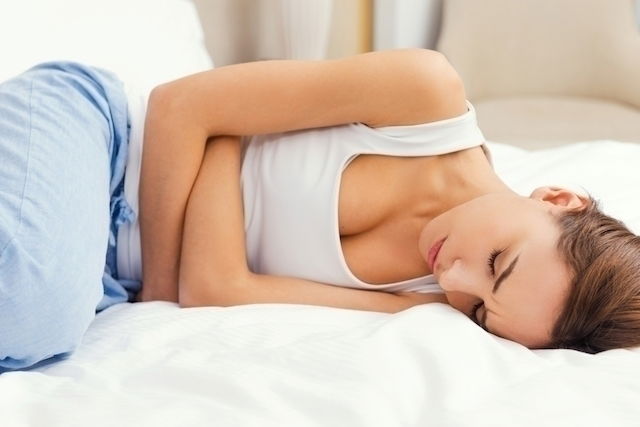Period symptoms can start a few days prior to menstruation starting, and can include sensitive breasts or feeling easily annoyed, for example.
These changes, also known as PMS symptoms, are normal and usually happen every month while you are fertile. They usually stop at about 40 to 50 years old, when menopause begins.
To alleviate these symptoms, you can take medication or engage in activities that promote relaxation, like physical activity, yoga or massage. .

How to know your period is starting
To know when your period is about to start, it is important to be aware of certain signs and symptoms. These appear in the majority of women, and can include:
- Abdominal bloating
- Fluid retention
- Headache or migraine
- Sudden change in mood
- Irritability
- Fatigue
- Feeling unwell
- Anxiety
- Emotional imbalance
- Swollen and painful breasts
- Appearance of pimples
- Increase in appetite
The signs of a period normally appear due to hormonal changes and can be relieve with the use of anti-inflammatory medication, like Advil, or antispasmodics or analgesics, like Buscopan or Tylenol. In addition, engaging in activity that decreases stress can also help to reduce symptoms. Some suggestions are exercising, taking a walk in a park or meditating.
Period calculator
In addition to being aware of symptoms, it is also possible to know when your period is next due by calculating your cycles. This can be done by knowing how long you period usually lasts for and when your last period occurred. Calculate when your next period is due by inserting your cycle information below:
During a period, many women experience migraines. A good way to relieve them is to engage in activities you enjoy, rest, and perform light physical activity. You can take cinnamon tea, which can speed up the start of a period, and consequently make some symptoms less intense.
How to relieve period symptoms
To relieve menstruation symptoms, you can use anti-inflammatory and analgesic medications. These can help relieve cramps, back pain and headaches. In addition, exercising, eating more fiber and drinking plenty of fluids during the day also help relieve menstruation symptoms.
Check out other ways to relieve period cramps and when you should see a doctor.
What causes late periods?
Delayed menstruation is not always a sign of pregnancy, as periods can be late due to factors such as excessive stress, strong emotions, hormonal changes or even excessive caffeine consumption. Therefore, it is important to consult a gynecologist if your period is late, so that the underlying cause can be identified and treatment as necessary can be started, if necessary.
Read more about the causes of a late period and what to do.






























